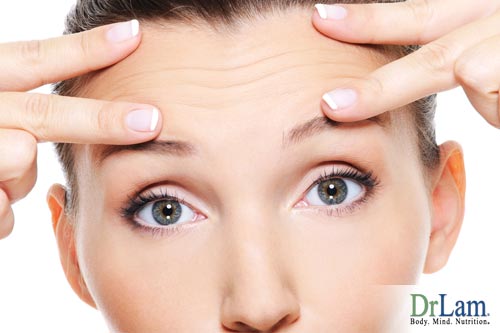 As people age, the most obvious and discouraging symptom is probably the loss of energy. “Energy” is a word that everyone is familiar with, but what exactly does it mean in terms of how your body works? Each of your 70 trillion cells has its own energy factories, called the mitochondria. This is where energy, in the form of ATP (adenosine triphosphate), is produced from food components such as glucose. ATP is the energy currency in your body; without ATP, there is no power to run your cells. Organs and muscles are, of course, built from cells, so if the cells are out of power, the body cannot function properly. The result is fatigue throughout your body. Perhaps, then, it’s no surprise that as you age, the quantities of ATP in your cells decrease, and you feel less energetic. D-ribose may help counteract this effect by maintaining higher levels of ATP throughout our body with easily manageable D-ribose side effects. This aids the mitochondria and leads to delayed cell death and increased longevity.
As people age, the most obvious and discouraging symptom is probably the loss of energy. “Energy” is a word that everyone is familiar with, but what exactly does it mean in terms of how your body works? Each of your 70 trillion cells has its own energy factories, called the mitochondria. This is where energy, in the form of ATP (adenosine triphosphate), is produced from food components such as glucose. ATP is the energy currency in your body; without ATP, there is no power to run your cells. Organs and muscles are, of course, built from cells, so if the cells are out of power, the body cannot function properly. The result is fatigue throughout your body. Perhaps, then, it’s no surprise that as you age, the quantities of ATP in your cells decrease, and you feel less energetic. D-ribose may help counteract this effect by maintaining higher levels of ATP throughout our body with easily manageable D-ribose side effects. This aids the mitochondria and leads to delayed cell death and increased longevity.
Ribose is a sugar that is made in your body as you metabolize glucose. D-ribose is the building block of ATP, the cellular energy currency. ATP is a molecule that contains very high-energy bonds that can be used to power important chemical reactions for essential bodily functions. The mitochondria make sure that the body has sufficient levels of ATP for all of those functions. Only when your cells have both the energy required to perform their functions and the materials to make ATP can the rest of your body function properly.
When you ingest glucose-containing food, your body processes it through multiple pathways. One pathway generates ribose, which signals the body to synthesize ATP. Another pathway activates the breakdown of glucose through glycolysis, harnessing the released energy to form ATP through other processes.
D-ribose supplementation provides the body with more building blocks for ATP. The more ATP molecules that are synthesized in a cell, the more energy is available for cellular functions. This process occurs in every cell in your body—including the cells that comprise the adrenal glands, muscles, and brain—powering all the processes that are required to keep you alive.
Since ATP creation occurs within the mitochondria, diseases affecting the mitochondria often cause body-wide disturbances, including hormone and neurotransmitter imbalances, muscle weakness, gastrointestinal disorders, neurologic issues, and sensory impairment. A mitochondrial dysfunction may therefore manifest as one or many of these symptoms. In the case of muscle cells, a lack of ATP production leads to muscle weakness. In the case of adrenal cells, reduced ATP leads to a decrease in cortisol production. In the hypothalamus, in the levels of a cortico-releasing hormone are reduced, and so on. Eventually, such dysfunctions can lead to cell death, causing serious issues throughout the body. Ribose supplements can alleviate the symptoms of mitochondrial dysfunction and thus help alleviate fatigue and revitalize cells.
 Collagen is also affected as we age. Collagen is a crucial protein in the body, found in connective tissue such as skin, bone, joints, and muscle. While you can’t take enough collagen to completely erase the wrinkles in your skin, collagen supplementation has been shown to improve joint stiffness and alleviate some muscle pain. Therefore, taken together with D-ribose, collagen could be a significant step towards Adrenal Fatigue recovery, aiding the body in healing and slowing some of the effects of aging.
Collagen is also affected as we age. Collagen is a crucial protein in the body, found in connective tissue such as skin, bone, joints, and muscle. While you can’t take enough collagen to completely erase the wrinkles in your skin, collagen supplementation has been shown to improve joint stiffness and alleviate some muscle pain. Therefore, taken together with D-ribose, collagen could be a significant step towards Adrenal Fatigue recovery, aiding the body in healing and slowing some of the effects of aging.
In addition, just as ribose is the building block for ATP, collagen is a building block for many proteins in our body. Collagen contains many amino acids that the human body cannot generate itself. These amino acids must be consumed by eating protein, especially meat, or through proper supplementation.
Collagen supplementation is thought to particularly help with inflammation, joint pain, and muscle function, all of which are often affected by Adrenal Fatigue. Thus, ribose and collagen can work together in your muscles to decrease pain, help increase your energy levels, and get you up and moving again.
To recover from Adrenal Fatigue, proper functioning of the adrenal glands must be restored. As this happens, the neuroendometabolic (NEM) stress response system —which is responsible for handling stress in the body—can then rebalance itself and bring the many processes in your body back into sync. The adrenals are a vital part of the NEM system, so an essential part of recovery is ensuring that the adrenal glands have enough energy. It is also crucial that the other cells in our body have enough energy to function properly, especially because so many of the body’s systems are affected by Adrenal Fatigue. Some of these essential functions include creating hormones (such as cortisol) clearing waste out of cells, and detoxifying the cell matrix. All of this requires energy from ATP.
When ribose is present at sufficient levels in the cell, it stimulates the formation of the ATP. When this occurs, there is plenty of ATP to perform cell functions. In normal, healthy cells, enough ribose is present because the pentose shunt from glucose is able to keep up with the demand. In some cases, however, as in those with chronic stress, the cells cannot keep up with the demand. This is when cells begin to fatigue.
This is why ribose supplementation can be beneficial. Ribose is not directly available in the diet; it can only be created in the body when it is broken down from glucose. This breakdown process takes energy. If you are already low on ATP, this is one more drain on your body’s energy reserves. Therefore, the supplement is a quicker way to provide your body with ribose, so that it can then build ATP, activate it through the mitochondria, and use this energy for the cell's functions.
Adrenal Fatigue occurs because the body is under constant stress. This chronic stress can be due to a work situation, a relationship, or even a previous injury or illness. Sometimes the stress is itself caused by an underlying condition such as an autoimmune disease or a mitochondrial disorder. This stress on the body triggers the hypothalamic-pituitary-adrenal axis (HPA axis), which acts on the adrenal glands to generate more cortisol. Cortisol helps the body handle stress by managing its inflammatory response; it both frees up sugar to use for the formation and activation of ATP and regulates its own pathway with what’s known as a negative feedback. When the body has responded sufficiently, cortisol acts on the hypothalamus to turn the HPA axis off.
In those suffering from Adrenal Fatigue, however, the HPA does not function properly. The adrenal glands cannot keep up with the demand for cortisol. Cortisol levels start to drop, which means that the HPA axis cannot be turned off, and the body keeps pushing for more cortisol. Eventually, there is not enough material or energy to create cortisol. Ribose supplementation provides more energy to the adrenal glands, which gives them a boost in making cortisol. Ideally, this helps in the later stages of Adrenal Fatigue, when cortisol levels have dropped because of the long-term demand.
Ribose will also help if the cause of Adrenal Fatigue and hormone imbalance is actually a mitochondrial deficiency. If a dysfunction in the mitochondria is the underlying cause of the symptoms, D-ribose will help to bringing the body back into balance.
The body responds holistically to stress. This means that usually more than one pathway is affected, as in the case of Adrenal Fatigue. The mitochondria are extremely important to the overall function of the body, especially when dealing with stress. The NEM stress response is the body’s whole-system approach to handling stress. One component is the HPA axis, as discussed above. The NEM response, however, also includes the mitochondria and how they keep all the body’s other functions going.
In particular, detoxification of neurotransmitters and hormones that are detrimental to our health requires the energy of ATP that is harnessed by the mitochondria.
The mitochondria thus power the cleaning out of the cells and extracellular matrix. Those with Adrenal Fatigue, often have many toxins that have built up in the body, so it is important for the mitochondria to function properly. D-ribose supports the mitochondria, which in turn supports the detoxification of the extracellular matrix.
 D-ribose is also unique in that it does not raise your blood sugar, unlike glucose and fructose (sugar from fruits), even though it is also a sugar. It therefore enhances energy flow without causing hyperglycemia. D-ribose is generally safe as a short-term supplement for those recovering from Adrenal Fatigue. However, D-ribose side-effects include diarrhea, nausea, headache, and stomach discomfort. It also has been shown to cause a drop in blood sugar levels. This might seem counter-intuitive, given that D-ribose is a sugar, but because it is a sugar, it triggers the secretion of insulin. Insulin is a hormone that is released by the pancreas and manages the breakdown of glucose, the main sugar in the human diet. When taking a D-ribose supplement however, insulin breaks down glucose in the bloodstream despite not having consumed glucose. This causes a drop in blood sugar. If you have diabetes or hypoglycemia, or are otherwise sensitive to changes in blood sugar, you should not take D-ribose. If you take any prescription drugs or other supplements that are shown to decrease blood sugar levels, you should also be careful of the combination. Always take D-ribose with food, or other compounds such as collagen, to reduce metabolic swings, which are especially common in those who are weak or have sensitive bodies. The combination of D-ribose and collagen is ideal to provide metabolic stability, increased energy, and support for the adrenal glands in times of stress.
D-ribose is also unique in that it does not raise your blood sugar, unlike glucose and fructose (sugar from fruits), even though it is also a sugar. It therefore enhances energy flow without causing hyperglycemia. D-ribose is generally safe as a short-term supplement for those recovering from Adrenal Fatigue. However, D-ribose side-effects include diarrhea, nausea, headache, and stomach discomfort. It also has been shown to cause a drop in blood sugar levels. This might seem counter-intuitive, given that D-ribose is a sugar, but because it is a sugar, it triggers the secretion of insulin. Insulin is a hormone that is released by the pancreas and manages the breakdown of glucose, the main sugar in the human diet. When taking a D-ribose supplement however, insulin breaks down glucose in the bloodstream despite not having consumed glucose. This causes a drop in blood sugar. If you have diabetes or hypoglycemia, or are otherwise sensitive to changes in blood sugar, you should not take D-ribose. If you take any prescription drugs or other supplements that are shown to decrease blood sugar levels, you should also be careful of the combination. Always take D-ribose with food, or other compounds such as collagen, to reduce metabolic swings, which are especially common in those who are weak or have sensitive bodies. The combination of D-ribose and collagen is ideal to provide metabolic stability, increased energy, and support for the adrenal glands in times of stress.
It is very important to know that depending on the level of Adrenal Fatigue or stress response, there might be different D-ribose side effects. Those with more sensitive bodies might not be able to handle the extra boost in energy because D-ribose can “over-energize” them. If this is the case, simply decrease the dose, or try taking the supplement with food. As with all supplements, be sure to check with your healthcare provider to ensure that there are no other potential drug interactions, and that your lethargy and low energy are being addressed effectively.
© Copyright 2016-2020 Michael Lam, M.D. All Rights Reserved.
